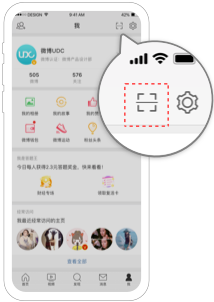
According to British singer-songwriter Morrissey, “shyness is nice”. When it leaves you feeling breathless, voiceless and even friendless, though, it can be anything but nice.
根据英国歌手兼词曲作家莫里西的说法“害羞很美好”。可它通常会让你感觉喘不过气、发不出声音、甚至无依无靠等等任何美妙以外的感受。
Shyness often manifests as social anxiety, and as Morrissey sings in his song Ask Me, it can stop you from doing the things you want to do in your life.
害羞常常表现为社交焦虑,正如莫里西在他的歌曲《问我》中所唱的那样,它会阻止你做你想做的事情。
I discovered that shy people often felt anxious about social encounters because they feared other people’s judgment – specifically, their negative evaluation. We torment ourselves with self-critical thoughts such as “I look out of place”, “I sound stupid” and “I’m making a fool of myself”.
我发现害羞的人经常会对社交活动感到焦虑,因为他们害怕别人的判断——尤其是他们的负面评价。我们用自我批评的想法折磨自己,比如“我看上去很不得体”、“我听起来很愚蠢”、“我在愚弄自己”。
So how can we best deal with the downsides of shyness and take advantage of the upsides?
那么,我们如何才能最好地处理害羞,并正面利用好它呢?
1) Use self-talk to reduce your discomfort. Remind yourself that 50% of the people around you are probably also feeling shy. You are not alone in dealing with these feelings. Try to separate your mind from your body’s symptoms.
1)用自我对话来减缓你的不安。提醒自己,你周围50%的人可能也会感到害羞。你并不是唯一一个需要面对这种情绪的人。试着把你的思想从不良的身体反应中剥离开。
2) Plan ahead. Use self-talk to remind yourself that you won’t be able to control all aspects of this social interaction. Be prepared to deal with a level of uncertainty.
2)提前计划。用自我对话来提醒自己,你无法控制社会互动的所有方面。准备好应对一定程度的不确定性。
3) Help others at social events. Try to spot some other shy people and help them out by approaching them. This takes the focus off your own discomfort .
3)在社交场合帮助别人。试着找出其他害羞的人,并通过接近他们去给与帮助。这让你把注意力从自己的不安中转移开。
4) Try exposure therapy. Give yourself regular small challenges in dealing with your shyness. Then reward yourself for being brave in the face of your anxiety.
4)尝试暴露疗法。为了解决你的害羞问题而给自己一些常规的小挑战。然后对自己因勇敢面对自己的焦虑而做出奖励。
5) Organise or join social activities in ways that suit you. It can help to arrange where you know who’ll be there, and there is an activity as the main focus of the event. This gives you something to talk about that you all have in common, as opposed to free-form socialising.
5)以适合你的方式组织或参加社交活动。它可以帮助你了解谁会在那里,并且有一个活动可以作为社交的主要焦点。这给你提供了一些大家都可共同探讨的话题,而不是自由形式的社交。
6) Confide your shyness to others rather than hide it. This can have a cathartic effect and reduce your sense of aloneness and/or shame.
6)向别人倾诉你的胆怯,而不是隐藏。这可以有一种宣泄的效果,减少你的孤独感或羞愧感。
7) Adopt a “persona”. In your professional capacity or your parenting capacity, for example, you can tell yourself that you are not being judged, because you represent something bigger and more important than you (your place of employment, your useful work role, or your role as a carer).
7)代入某种“角色”。例如,在你的专业职能或育儿能力方面,你可以告诉自己,你没有被评论,因为你代表了比你本身更大更重要的东西(你所处的工作领域,你扮演的有价值的工作角色,或者你作为一个看护者的角色)
8) Keep a diary of your journey to manage your shyness/social anxiety. Note your progress and your challenges. Reflect on what you are going through.
8)记下你旅途的日记来管理你的害羞/社交焦虑。注意你的进步和面临的挑战。反思你正在经历的事情。
9) Use social media to reach out, but be wary of the downsides. Monitor its effect on you and take breaks when you need to. Assess the positives and negatives .
9)利用社交媒体去与人沟通,但要警惕消极的一面。注意它对你的影响,并在你需要的时候调休。评估积极和消极的影响。
10) Try other anxiety management strategies. Consider meditation, yoga, physical exercise, deep breathing and other forms of relaxation therapy.
10)尝试其他的焦虑管理策略。考虑冥想、瑜伽、体育锻炼、深呼吸和其他形式的放松疗法。












































































































